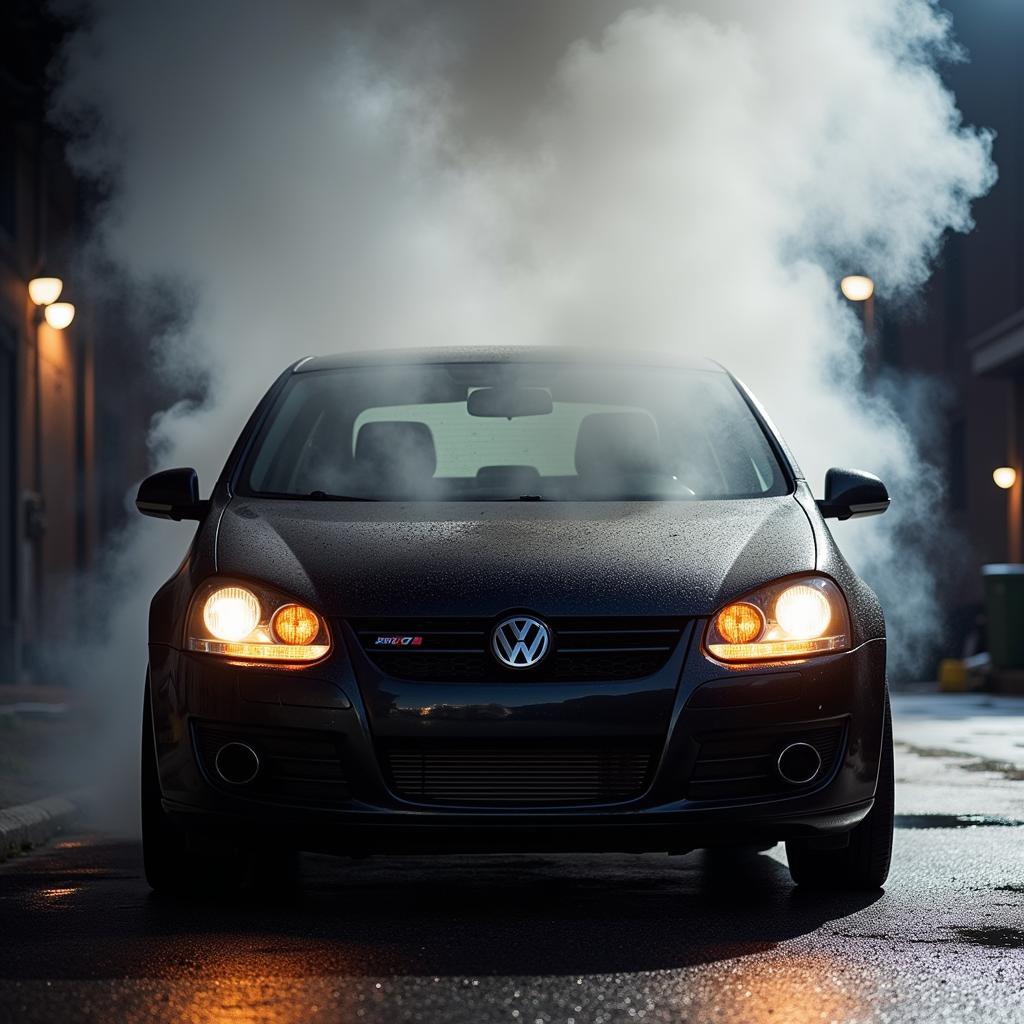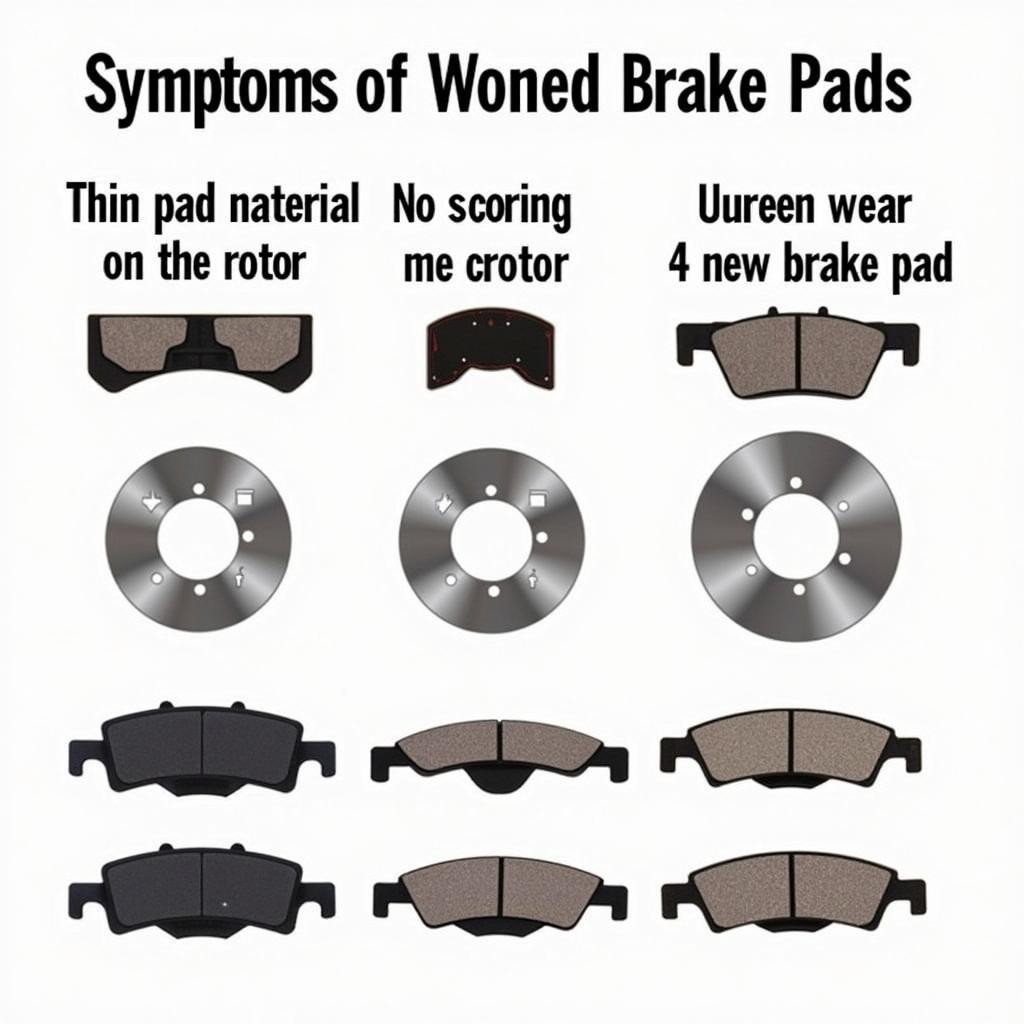Car troubles are an unfortunate reality for all vehicle owners. While some issues require a professional mechanic, understanding the Most Common Car Breakdown Problems can help you address minor issues or at least better understand what your mechanic is explaining. This guide dives into those common problems, their causes, and how you might address them. Let’s get started!
Battery Woes: The Heart of Your Electrical System
One of the most frequent reasons for a car not starting is a dead battery. Engine problems affect on value car can also sometimes be linked to the battery. The battery supplies power to the starter motor and the entire electrical system.
Common causes of battery problems include:
- Old age: Like any component, batteries deteriorate over time.
- Extreme temperatures: Both hot and cold weather can impact battery performance.
- Parasitic drain: Even when the car is off, some components might still draw power, slowly draining the battery.
Possible Solutions:
- Jump-starting: This is a temporary fix for a dead battery.
- Battery testing: A mechanic can test your battery’s charge and overall health.
- Replacement: If your battery is old or damaged, replacement is often the best course of action.
Tire Troubles: More Than Just Flats
Tires are crucial for safe driving, and unfortunately, tire problems are a common occurrence.
Common tire problems:
- Punctures: Sharp objects on the road can lead to flat tires.
- Slow leaks: Tiny punctures might result in slow leaks, causing your tire pressure to gradually decrease.
- Wear and tear: Driving on worn-out tires can significantly affect your car’s handling and braking distance.
Possible Solutions:
- Repairing punctures: Small punctures can be repaired by a tire professional.
- Tire replacement: Worn-out tires, or those with large punctures, need replacement.
- Regular maintenance: Regularly checking tire pressure and tread depth can help you avoid many tire-related problems.
 Car engine overheating
Car engine overheating
Engine Overheating: A Recipe for Disaster
An overheating engine is a serious problem that should never be ignored. Ignoring it can lead to costly engine damage.
Common causes of overheating:
- Low coolant level: Coolant prevents the engine from getting too hot.
- Cooling system leaks: Leaks in the radiator, hoses, or water pump can lead to coolant loss.
- Faulty thermostat: A malfunctioning thermostat might not regulate the engine temperature correctly.
Possible Solutions:
- Adding coolant: If your coolant level is low, carefully add more (when the engine is cold).
- Seeking professional help: For leaks or a potentially faulty thermostat, seek a mechanic’s assistance.
Alternator Issues: Powering Your Drive
The alternator charges the battery and powers the electrical system while the engine is running. A failing alternator can leave you stranded.
Common signs of alternator problems:
- Dimming lights: Headlights and interior lights might be dimmer than usual.
- Warning light: The battery warning light on your dashboard might illuminate.
- Strange noises: A failing alternator can sometimes make whining or grinding noises.
Possible Solutions:
- Alternator testing: A mechanic can test your alternator’s output.
- Alternator replacement: If your alternator is failing, it needs replacement.
Brake System Failures: Safety First
Your car’s braking system is arguably its most crucial safety feature. Any issues with your brakes require immediate attention.
Common brake problems:
- Worn brake pads: Brake pads wear down over time and need replacement.
- Brake fluid leaks: Leaks in the brake lines can significantly reduce braking power.
- Worn rotors: The rotors are metal discs that the brake pads grip to stop the car. Worn rotors can decrease braking efficiency.
Possible Solutions:
- Brake pad replacement: Worn brake pads need to be replaced promptly.
- Addressing leaks: Any brake fluid leaks demand immediate professional attention.
- Rotor resurfacing or replacement: Depending on the wear, rotors might be resurfaced or replaced.
Spark Plug Problems: Igniting the Engine
Spark plugs ignite the air-fuel mixture in the engine cylinders, making them essential for your car to run.
Common spark plug issues:
- Worn spark plugs: Over time, spark plugs can wear down, leading to misfires and reduced engine performance.
- Fouled spark plugs: Deposits from fuel additives or oil can foul the spark plugs, preventing them from sparking properly.
Possible Solutions:
- Spark plug replacement: Spark plugs are wear items and need periodic replacement.
- Professional cleaning: In some cases, a mechanic can clean fouled spark plugs, but replacement is often more reliable.
Sensor Malfunctions: The Brain of Your Car
Modern cars rely on various sensors to monitor and control engine performance, emissions, and other systems.
Common sensor problems:
- Oxygen sensor (O2 sensor) failure: A faulty O2 sensor can lead to decreased fuel efficiency and increased emissions.
- Mass airflow sensor (MAF sensor) problems: A malfunctioning MAF sensor can cause poor engine performance, stalling, or rough idling.
Possible Solutions:
- Sensor inspection: A mechanic can inspect sensors for damage or malfunction.
- Sensor replacement: Faulty sensors usually need replacement.
Transmission Troubles: Shifting Gears Smoothly
The transmission system is responsible for transferring power from the engine to the wheels, allowing your car to shift gears.
Common transmission problems:
- Fluid leaks: Low transmission fluid levels can lead to shifting problems and damage to the transmission.
- Slipping gears: This can be a sign of worn clutches or other internal problems.
Possible Solutions:
- Fluid check and top-up: Regularly check your transmission fluid level and top it up as needed.
- Professional inspection and repair: For slipping gears or other serious transmission problems, seek professional help immediately.
Electrical System Issues: More Than Just the Battery
While the battery is a common culprit, various other electrical problems can plague your car.
Common electrical issues:
- Faulty wiring: Damaged or corroded wiring can cause a wide range of electrical gremlins.
- Blown fuses: Fuses protect the electrical system from overloads. A blown fuse might indicate a short circuit or another electrical problem.
- Malfunctioning switches: Problems with window switches, power seat controls, or other electrical switches can be frustrating and inconvenient.
Possible Solutions:
- Inspection and repair by a qualified mechanic: Diagnosing and repairing electrical issues often requires specialized knowledge and tools.
Preventing Breakdowns: Proactive Maintenance is Key
While not all car problems are preventable, you can significantly reduce the risk of breakdowns with proactive maintenance.
Essential car maintenance tips:
- Regular oil changes: Oil changes are crucial for engine longevity.
- Fluid checks: Regularly check all fluid levels, including engine oil, coolant, brake fluid, transmission fluid, and power steering fluid.
- Tire care: Check tire pressure monthly and inspect tire tread depth regularly.
- Scheduled maintenance: Follow your car manufacturer’s recommended maintenance schedule.
- Addressing warning signs: Never ignore dashboard warning lights or unusual noises or smells coming from your car.
Conclusion
Understanding the most common car breakdown problems can empower you to address minor issues and make informed decisions when seeking professional help. Remember, problems in a car can arise at any time. Regular maintenance and addressing warning signs promptly can go a long way in preventing breakdowns and keeping your car running smoothly for years to come.
“Knowing the common causes of breakdowns can save you time and money,” says John Smith, a senior mechanic with over 20 years of experience. “A little preventative maintenance goes a long way.”
If you’re experiencing car trouble and need expert assistance, don’t hesitate to contact AutoTipPro at +1 (641) 206-8880. Our team of experienced mechanics at 500 N St Mary’s St, San Antonio, TX 78205, is dedicated to providing top-notch car repair and maintenance services.






Leave a Reply